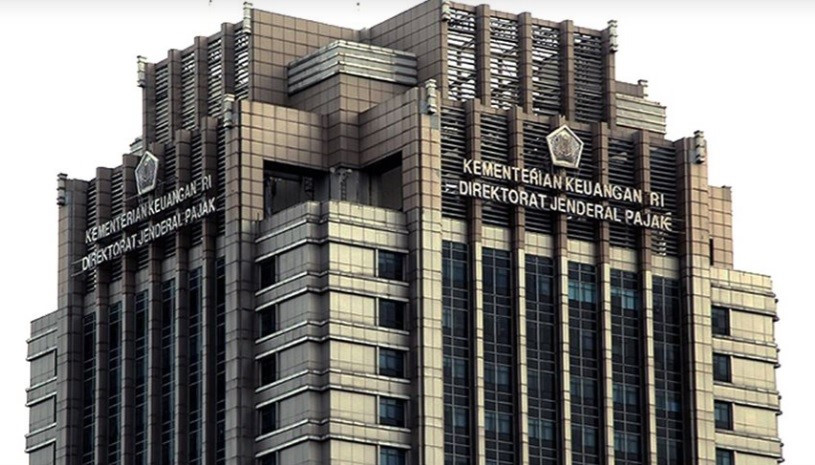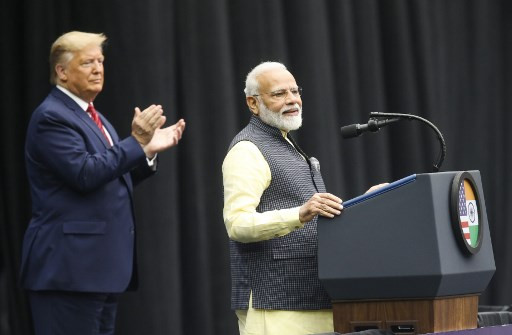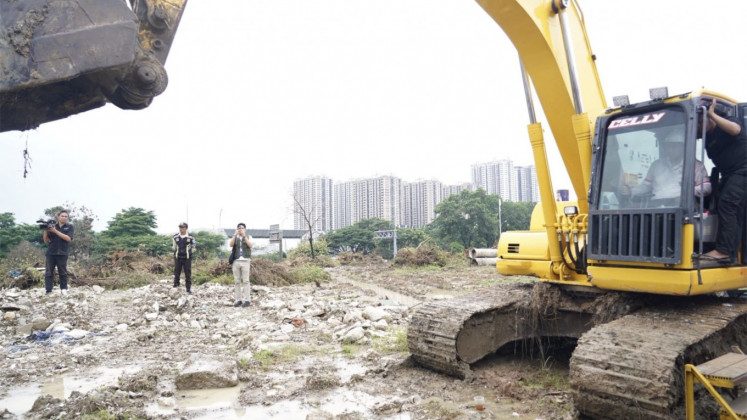Popular Reads
Top Results
Can't find what you're looking for?
View all search resultsPopular Reads
Top Results
Can't find what you're looking for?
View all search resultsObstacles and strategies to achieving 2025 tax revenue target
Change text size
Gift Premium Articles
to Anyone
H
ead of the Tax Revenue Management Sub-Directorate of the Directorate General of Taxes (DJP) at the Finance Ministry Muchamad Arifin has reported that the tax revenue performance of the last 10 years was relatively good. Although there was a slowdown between 2014 and 2019, from 2021 to 2023 tax revenue grew very well, supported by economic recovery, rising commodity prices and a mix of tax policies. In 2022, tax revenue experienced the highest growth of 115.6 percent.
"In 2021 we were able to achieve growth of 104 percent and in 2023 the tax ratio also grew by 8.9 percent," he said at the 2025 State Budget Media Gathering event, held in Anyer, Banten, on Sept. 29.
However, in 2024, the tax revenue target once again faced significant obstacles caused by the decline of commodity prices. Until August 2024, tax revenues reached Rp 1,196.54 trillion, 60.16 percent of the 2024 State Budget, supported by gross VAT and PPnBM revenues, which recorded positive performances, in line with maintained economic growth. In gross terms, tax revenues are still in the positive zone.
"Commodities were booming until 2023, which had an impact on 2024," he said.
Arifin also conveyed the projection for tax revenue in 2025. He revealed that the 2025 tax revenue target is Rp 2,189.3 trillion, an increase of 13.9 percent from the 2024 outlook. According to Arifin, tax growth in 2025 will be supported by growth in non-oil and gas income tax revenue, as well as VAT and PPnBM.
However, reaching the tax revenue target in 2025 will also face challenges that are not easy. Arifin explained that these challenges include the projection of a global economy that is still relatively stagnant, moderation in commodity prices, and the shift from the manufacturing sector to the service sector, which has driven an increase in the informal sector so that it has not been fully captured in the tax system.
"The third is the change in economic activity from conventional to digital. This of course requires a shift in the way of collecting taxes because it is relatively more difficult compared with the conventional economy," said Arifin.
Therefore, a tax policy directed at optimizing tax revenue is needed, one means of which is by expanding the tax base through intensification and extensification, encouraging compliance levels through the use of tax system technology, strengthening synergy, conducting joint programs, law enforcement, providing tax incentives and encouraging the strengthening of organizations and human resources.
"Tax revenue is inseparable from the policy mix that will later encourage investment, encourage sectors that will provide high added value that supports economic development, supports competitiveness, the business world and the quality of human resources, improves the investment climate, then encourages the implementation of labor and supports the acceleration of green economic development," he concluded.
Source: Finance Ministry










